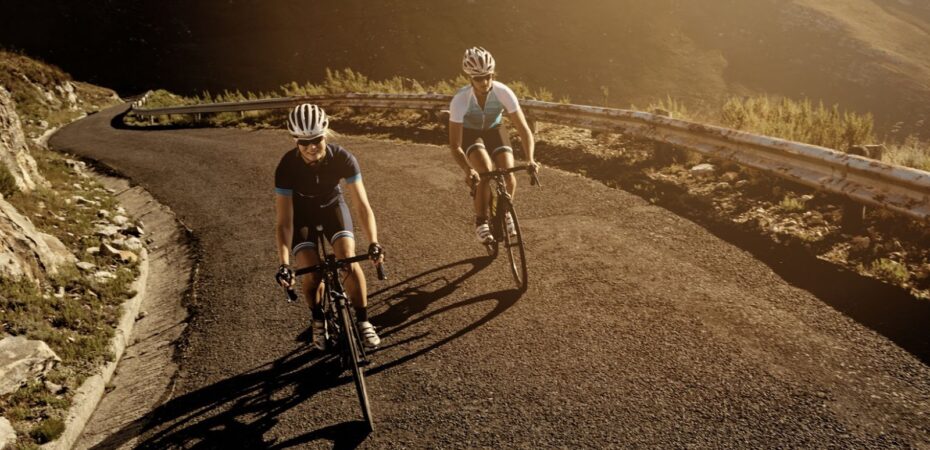If you’re looking for a way to get up close and personal with nature, then exploring the great outdoors on two wheels may be just the ticket. Whether it’s a weekend getaway or a full-blown vacation, taking a cycling vacation can be an amazing experience that combines the thrill of the open road with the beauty of nature.
Planning the perfect cycling trip can be a daunting task, especially if you’re a novice. But with some careful planning and a few handy tips, you can make sure that your cycling vacation is an unforgettable and enjoyable experience. From choosing the right route and packing the essentials to staying safe and confident on the road, we’ll help you get the most out of your cycling vacation.
Choosing The Right Route
The first thing you’ll need to do is decide on your destination. Are you looking for an easy route or something more challenging? What about terrain and climate? Are there any expected road closures or high-traffic areas you’ll need to plan around? All of these things should be taken into account when choosing the right route for your cycling vacation. You can also choose a route that incorporates different kinds of cycling, such as mountain biking and road biking. That way, you can experience a wide range of terrains and challenges and see a variety of scenery at the same time. If you’re unsure where to start, a simple internet search of “best cycling routes” will yield lots of great suggestions.
Packing The Essentials
Before you head out on your cycling vacation, you’ll want to make sure you have everything you need packed and ready to go. A checklist of the essentials can help make sure you don’t forget anything important and can also help you make sure you have the right gear for your trip. Here are some essentials that you’ll want to make sure to include on your cycling vacation:
- Bike spares, like inner tubes
- Puncture repair kit and tools
- Waterproof clothing
- First aid kit
- Sunscreen
- Sunglasses or cycling glasses
- Phone
- Battery pack
- Hardcopy of maps
- Snacks or energy gels
- High-vis vest
Getting The Right Insurance

When you’re planning a cycling vacation, you’ll want to make sure that you have the right insurance in place. Cycling insurance can protect you from a number of risks, such as crash damage and theft coverage. However, you’ll also want to find a policy that offers the full value of your bike if something were to happen, such as the policies offered by Velosurance. By using Velosurance, you’ll be able to replace your bike if the worst happens without losing money, so you can rest easy knowing you’re covered during your trip.
Staying Safe On The Road
While you’re out on the road, it’s important to stay safe and keep your eyes peeled for potential dangers. Before you leave, make sure that you know how to change a flat tire, and pack the right tools in your bag. It’s also a good idea to bring a bike pump along with you, as well as water and snacks to keep your energy up during your trip.
If you’re cycling abroad, it’s a good idea to familiarize yourself with the local laws and rules of the road before you leave. This includes things like using hand signals and proper lane positioning. It’s also important to stay aware of your surroundings, especially if you’re cycling in a larger city. Stay alert so you can be prepared for potential dangers, like cars cutting you off or even a fellow cyclist ignoring proper lane position.
Planning Your Meals
If you’re planning to cycle long distances, you’ll want to pack plenty of snacks and water. However, you’ll also want to plan your meals. When choosing your route, it’s essential that you check where you can stop for food as well as which of the restaurants on your route have somewhere to store your bike while you eat. Cycling can be quite strenuous, especially on longer trips, so it’s important to stay nourished and eat the right food on the road.
Finding Accommodation On The Way

Another important thing to think about when planning your cycling vacation is finding places to stay along the way. If you’re cycling for an extended period of time, you may want to look into booking hotels or hostels along the way. If you’re cycling on a shorter trip, you may want to look into finding campgrounds. If you’re cycling with a group, you may want to look into booking a tour that provides you with hotels and meals during your trip.
Dealing With Mechanical Issues
One of the most nerve-wracking things that can happen while you’re cycling is dealing with a mechanical issue. The best way to deal with these problems is always to have a repair kit, including a pump, spare tubes, a chain tool, and a hex wrench. Another important part of dealing with mechanical issues is knowing when to head to a local bike shop or find a mechanic to help you repair the problem. So you can get back on your trip in no time.


 By
By 



